Module 3 Unit 1
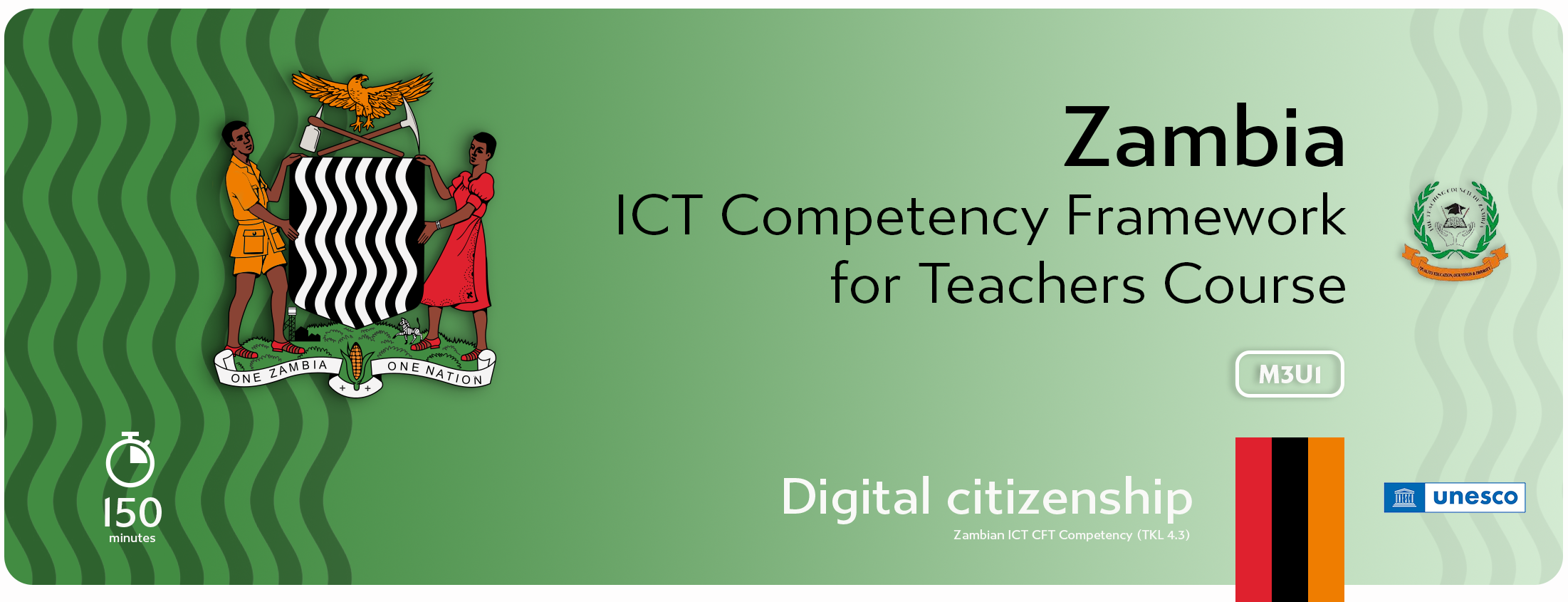

Not only are learners exposed to increased connectedness, have access to large amounts of information and are part of a global community, but they are also able to study or communicate anywhere and anytime. As citizens of any community, we have certain roles and responsibilities. Your role as a teacher is to help your learners to understand what is acceptable and appropriate behaviour in an online society. Here are two important terms you will need to keep in mind as you work through this lesson:
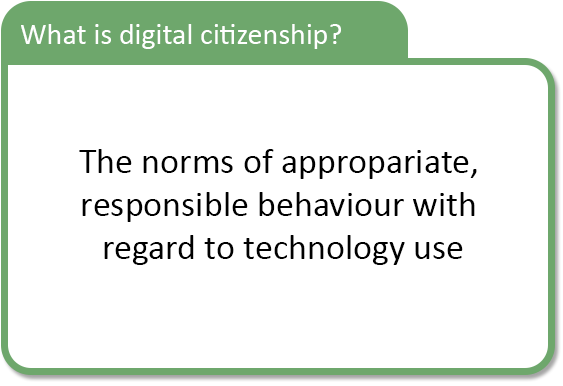
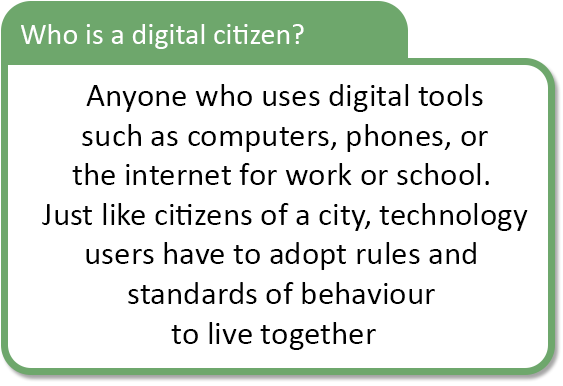
To be a citizen of a country brings certain rights and responsibilities. You have the right to vote, and the responsibility to pay taxes. You have the right to express your opinion, but you also have the responsibility to be respectful of the opinions of others.
Digital citizenship has similar benefits and responsibilities.
Take a look at the video below for more information:
Our digital footprints are not like the footprints in sand, washed away by water or blown away by the wind. Rather they are like footprints left to dry in the wet concrete of the footpath. They are a permanent reminder of our actions, inactions and interactions. To navigate and to survive in this dynamic digital world requires some basic rules and guidelines, we call these tenets of digital citizenship.
There are six tenets of digital citizenship. We will be working through each of these tenets.
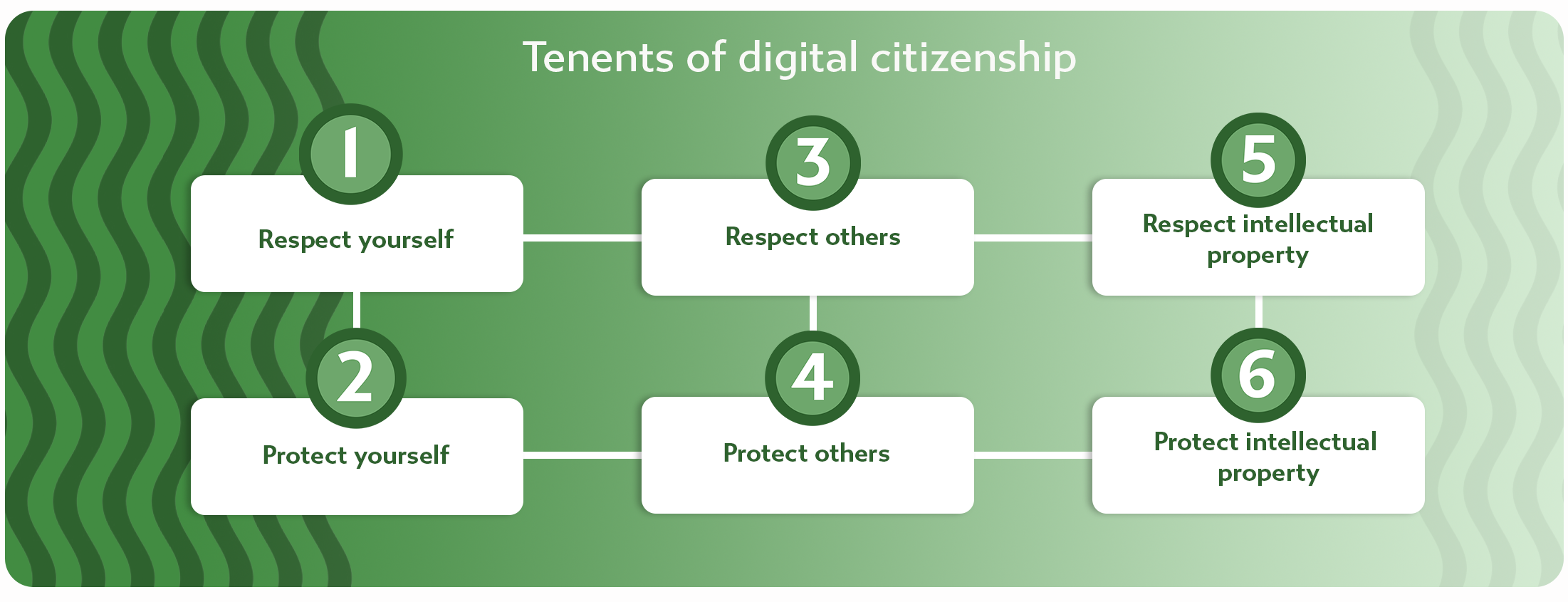
For more information, watch this video on why it’s important to teach responsible digital citizenship in schools, instead of focusing only on cyber security:
digital citizenship 2013 from CORE Education Digital Media on Vimeo.
Respecting yourself starts with the name you use to present yourself. How often do we see social networking or twitter names that are suggestive and questionable? How does your profile, online name and image portray you as a potential member of a professional
organisation?
You need to consider the potential outcomes of revealing these aspects of your life to what is increasingly a public forum. While many social networking sites do have privacy options, the default level of access could see your most personal information
accessible via applications or via your friends, their friends and associates.
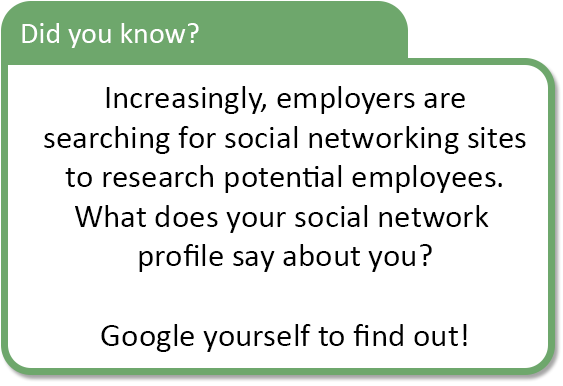
Blogs, wikis, twitter and instant messaging services allow
you to express your opinions. It pays to be sure of your facts before you publish anything on the internet.
The internet provides a great medium to meet new people and develop new friendships, but it is crucial that this is done with an awareness of the nature of the internet. Social media has huge potential for establishing new relationships but does have a similar potential for risk. Don't publish a schedule of your activities and remember to set the privacy settings on your tools to control access to your updates, posts or profile.
Think about the information you are posting, what will it mean to an outsider viewing it? What will it mean without the prior information your audience (friends, blog subscribers, twitter followers etc) may have?
As a responsible cyber or digital citizen, we model respect for other people. The ease with which anyone with internet access can publish is incredible. Publishing in a digital medium is as simple as typing or speaking. A good general rule to follow is:
If you wouldn't say it in person, don't say it online.
Respect for others goes beyond the material we might publish and goes to the sites we visit. If we pass on an e-mail, or visit a website, it means that we approve of the content.
An example of passing on content that could harm others is cyberbullying. Cyberbullying in South Africa and across the world is a big problem, especially for teenagers.As a teacher it is your responsibility to stop bullies, whether they are online or not.
Watch this video on cyberbullying prevention.
Every social networking site, instant messaging tool, chatroom, wiki, blog and social media has a report abuse contact. Use it yourself if you encounter abusive behaviour and encourage your students to do the same. We can protect others by not tolerating and reporting behaviour that is inappropriate or unacceptable.
Another thing you can advise your students to do is to not forward emails, photos or Whatsapp messages that are derogatory but to rather delete them and report them.
There is so much information out there, and so many amazing materials to share and so many people have given their precious time for free.
This tenet of the digital citizen is to respect intellectual property. Respecting intellectual property is not hard and requires little more than common courtesy, like:
Just as you would not steal a DVD, you should not steal content online, including books, music, movies and software. This is called piracy, and piracy is theft.
Piracy discourages creativity, and takes away the opportunity for emerging artists to succeed. There are alternatives. The creative commons licensing agreements have made available millions of images, masses of media, and libraries of books, at no cost to the user.
Click on the website below to look for some resources that are shared freely: